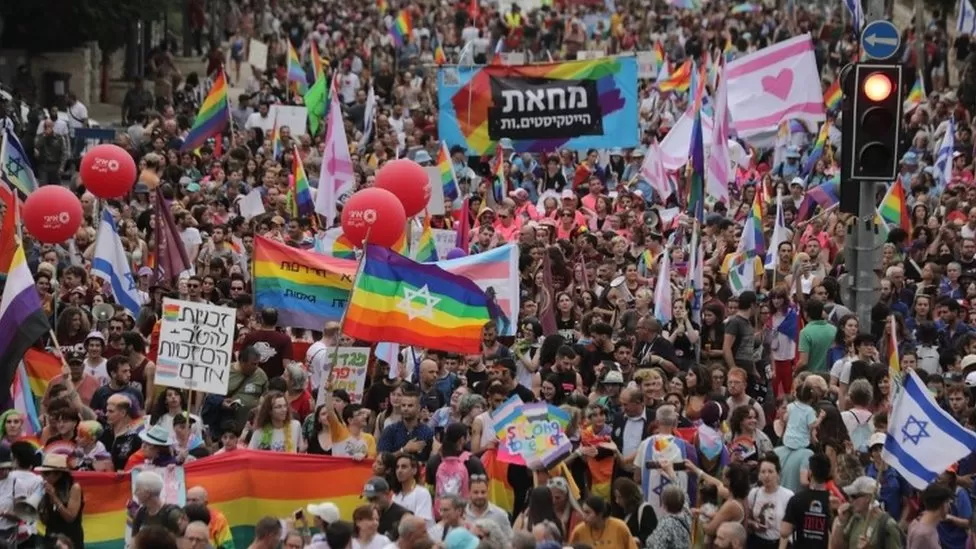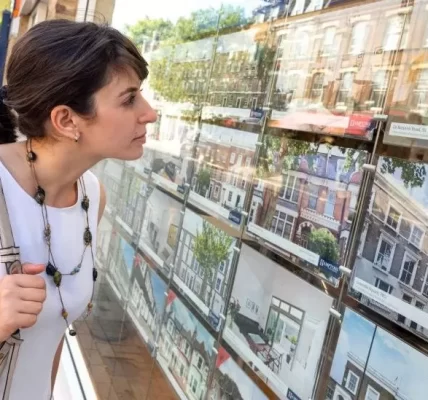Marchers at Jerusalem Gay Pride booed Israel’s far-right Police Minister Itamar Ben-Gvir.
Despite security concerns about online threats and counter-protests, thousands attended the event.
The march was the first since the inauguration of a hardline religious-nationalist government, including key ministers who publicly oppose homosexuality.
Tensions are constantly high after a teenage participant was murdered by an ultra-Orthodox Jewish extremist in 2015.
Marchers carried enormous rainbow and Israeli flags, as well as posters accusing far-right officials of attempting to put them “back into the closet.”
Mr Ben-Gvir, who was in charge of securing the march as National Security Minister, has a long history of overtly homophobic beliefs and once attended a so-called “beast parade” denying LGBTQ rights.
The event’s context has shed new light on the country’s deepening fault lines, where secular Jews have long championed the country’s open culture of LGBTQ rights, but where political and demographic shifts are giving the nationalist and ultra-Orthodox right-wing unprecedented power. The schism is particularly noticeable in Jerusalem, which is recognized for its conservative and religious populace.
Three persons were arrested in connection with threats made in the run-up to the event, and an internet watchdog reported an increase in homophobic hate speech.
According to FakeReporter, which monitors online extremism, far-right Telegram and WhatsApp groups shared “violent and hateful messages” throughout the week. According to the report, Lehava, a far-right organisation, referred to the march as a “abomination parade” and called for protests, along with a statement indicating that it would be a “deadly Thursday.”
The rally was surrounded by barricades, and the path was patrolled by hundreds of armed police officers. After warning of a “public climate of danger” for LGBTQ persons, organizers announced a record attendance of 30,000 people.




